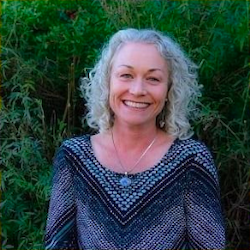
These are traumatic times. From local wildfires and floods to mass human migrations and species extinctions, we are experiencing unprecedented global change and uncertainty. This upheaval has a profound affect on our individual emotional and physical health, our social functioning, our overall well-being, and the health of our community. So how do we navigate the climate crisis while cultivating emotional resiliency?
Kaiser Health indicates doctors and practitioners are seeing a dramatic increase in patients self-reporting climate distress. The National Institute of Environmental Health Sciences speak to this urgency as well in their webinar: “The Urgent Need to Build Personal and Psychosocial Resilience for Climate Change.” They indicate three necessary interrelated elements of an effective response to climate disruption:
1. Reducing emissions from fossil fuels and protecting natural carbon sinks.
2. Preparing and adapting physical infrastructure and natural resources.
3. Building the capacity of individuals and groups to cope with trauma, learn, grow, and thrive.
Nichole Warwick will share her deep knowledge of the dynamics of climate psychology, the impacts of ecological grief, and the systems that cultivate emotional resilience, including:
– Simple, evidence-based activities that stimulate a relaxation response within the parasympathetic nervous system and promote emotional regulation for children and adults.
– Psychological skills to help us better understand our own unique stress responses, what triggers us, how we can regulate ourselves, how we can care for ourselves.
– How to compassionately identify stress and trauma in others and provide support.
Please join us for this important class, as we recover from the Kincade fire and brace for future events.
CLIMATE CHATS are brought to you free by WORK Petaluma. Donations are welcome and Friends of WORK Memberships help us keep this program going! 🙂
Bio: Nichole Warwick is an experienced, conscientious, award-winning professional with a background in educational psychology, ecology, and human development. She is a community organizer, trauma-informed educator and group facilitator with experience working with vulnerable populations (including people with disabilities, children, indigenous peoples, immigrant communities, and at-risk families). Bilingual (Spanish) with multicultural awareness and sensitivities.

